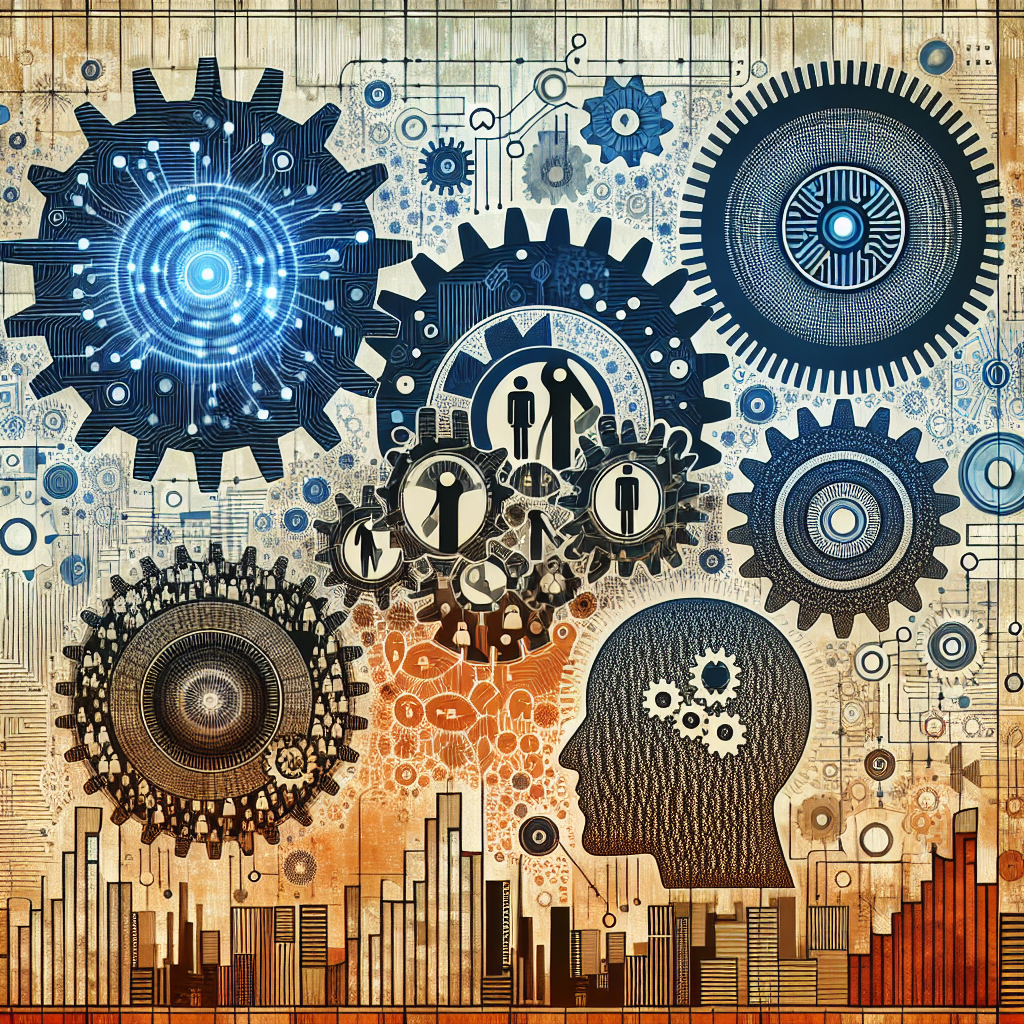The Impact of AGI on Jobs, Society, and the Economy: A Comprehensive Analysis
Artificial General Intelligence (AGI) is a form of artificial intelligence that is capable of understanding and learning any intellectual task that a human being can. This technology has the potential to revolutionize many aspects of our society, including the job market, social interactions, and the economy. In this article, we will explore the potential impact of AGI on jobs, society, and the economy and discuss the opportunities and challenges that it presents.
Impact on Jobs
One of the most significant impacts of AGI on society is its potential to automate a wide range of jobs currently performed by humans. As AGI becomes more advanced, it will be able to perform tasks that require complex problem-solving, creativity, and emotional intelligence – tasks that were previously thought to be beyond the capabilities of machines.
While automation has the potential to increase efficiency and productivity in many industries, it also raises concerns about the impact on jobs. Some estimates suggest that up to 47% of jobs in the US could be at risk of being automated in the next two decades. This could lead to widespread unemployment and economic disruption, particularly for low-skilled workers in industries such as manufacturing and transportation.
On the other hand, AGI also has the potential to create new job opportunities in fields such as data science, machine learning, and robotics. As AGI becomes more prevalent, there will be a growing demand for workers with the skills to design, develop, and maintain these technologies. Additionally, AGI could free up human workers to focus on tasks that require human creativity, empathy, and critical thinking – skills that are difficult for machines to replicate.
Impact on Society
The widespread adoption of AGI is likely to have a profound impact on society, reshaping the way we live, work, and interact with each other. One of the key challenges will be ensuring that the benefits of AGI are distributed equitably across society. There is a risk that AGI could exacerbate existing inequalities, with wealth and power concentrated in the hands of a small elite who control the technology.
AGI also raises ethical questions about the use of AI in decision-making processes. For example, algorithms used in hiring and promotion decisions could perpetuate bias and discrimination if not carefully designed and monitored. Similarly, the use of AI in healthcare and criminal justice systems raises concerns about privacy, security, and accountability.
On the other hand, AGI has the potential to improve our quality of life in many ways. For example, AI-powered healthcare systems could revolutionize the way we diagnose and treat diseases, leading to better outcomes for patients. AGI could also help us address some of the most pressing global challenges, such as climate change, poverty, and inequality.
Impact on the Economy
The adoption of AGI is likely to have significant implications for the economy, reshaping industries and creating new opportunities for growth and innovation. Automation powered by AGI has the potential to increase productivity and reduce costs in many sectors, leading to higher profits for businesses and lower prices for consumers.
However, the benefits of automation may not be evenly distributed across the economy. Some industries and regions are likely to be more heavily impacted by automation than others, leading to job losses and economic disruption in those areas. This could exacerbate existing inequalities between urban and rural areas, and between different socioeconomic groups.
One of the key challenges for policymakers will be managing the transition to an economy powered by AGI. This will require investment in education and training programs to help workers adapt to the changing job market, as well as policies to ensure that the benefits of automation are shared equitably across society.
FAQs
Q: Will AGI replace all human jobs?
A: While AGI has the potential to automate many tasks currently performed by humans, it is unlikely to replace all human jobs. There are certain tasks that require human creativity, empathy, and critical thinking – skills that are difficult for machines to replicate.
Q: How can we ensure that the benefits of AGI are distributed equitably across society?
A: One way to ensure that the benefits of AGI are distributed equitably is to invest in education and training programs that help workers adapt to the changing job market. Additionally, policymakers can implement policies to ensure that the benefits of automation are shared fairly across society.
Q: What are some of the ethical challenges associated with the use of AGI?
A: Some of the ethical challenges associated with the use of AGI include bias and discrimination in decision-making processes, privacy and security concerns, and accountability for the actions of AI systems. It is important for policymakers and technologists to address these challenges to ensure that AGI is used responsibly and ethically.
In conclusion, AGI has the potential to revolutionize many aspects of our society, including the job market, social interactions, and the economy. While there are challenges and risks associated with the adoption of AGI, there are also opportunities for growth and innovation. It is crucial for policymakers, businesses, and society as a whole to work together to ensure that the benefits of AGI are shared equitably and responsibly.

